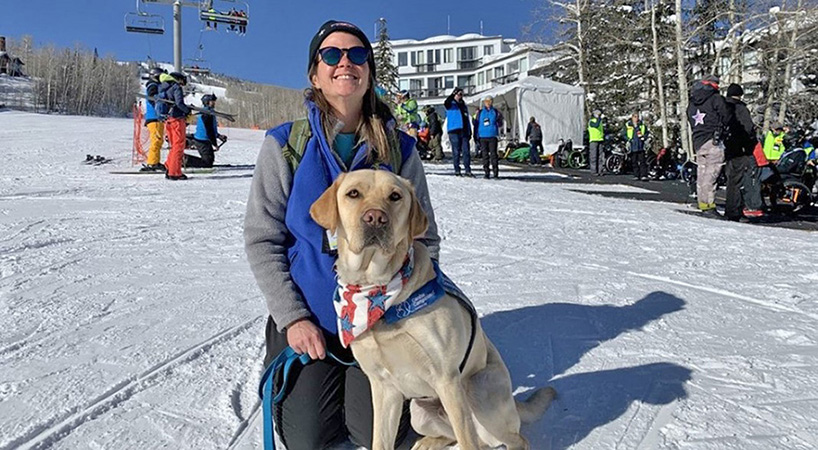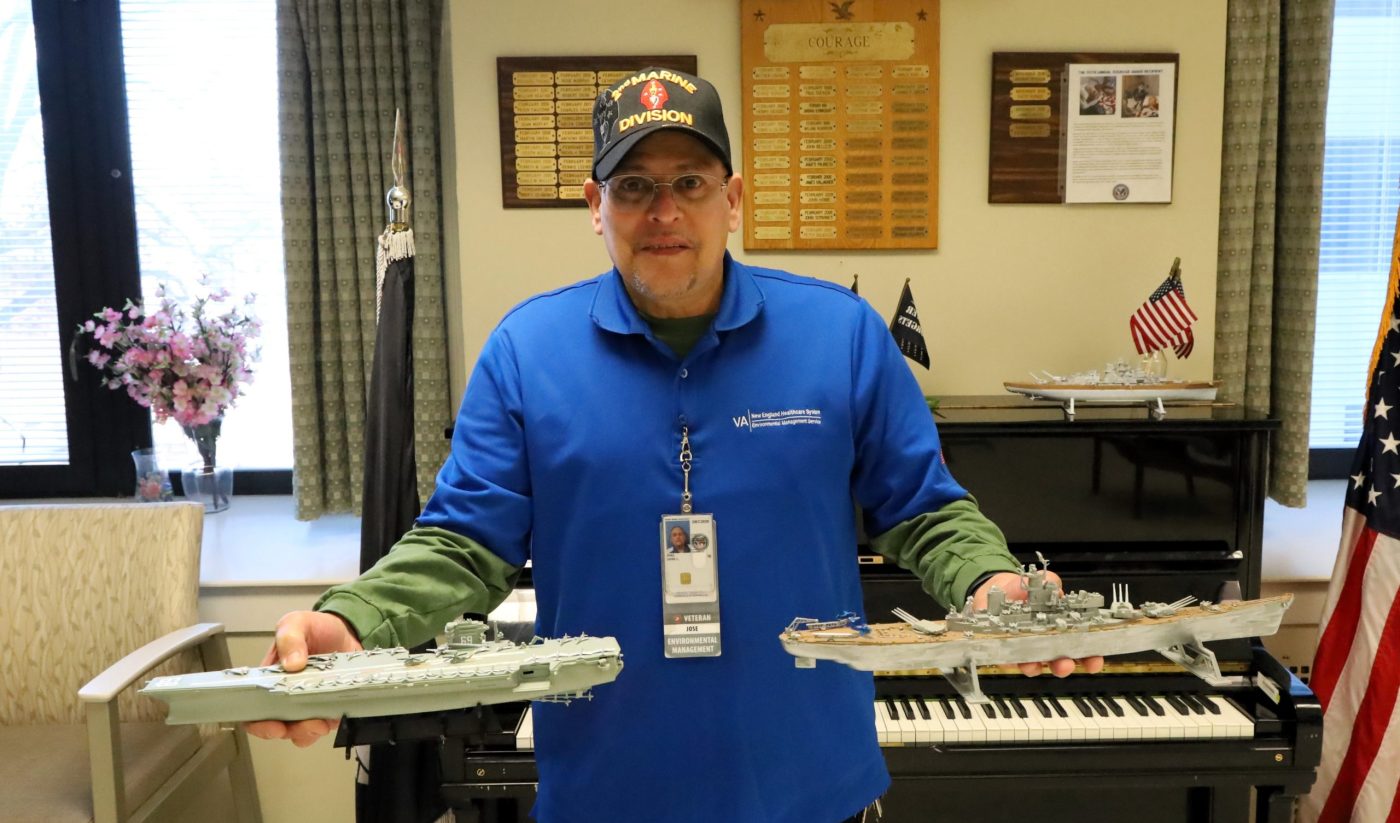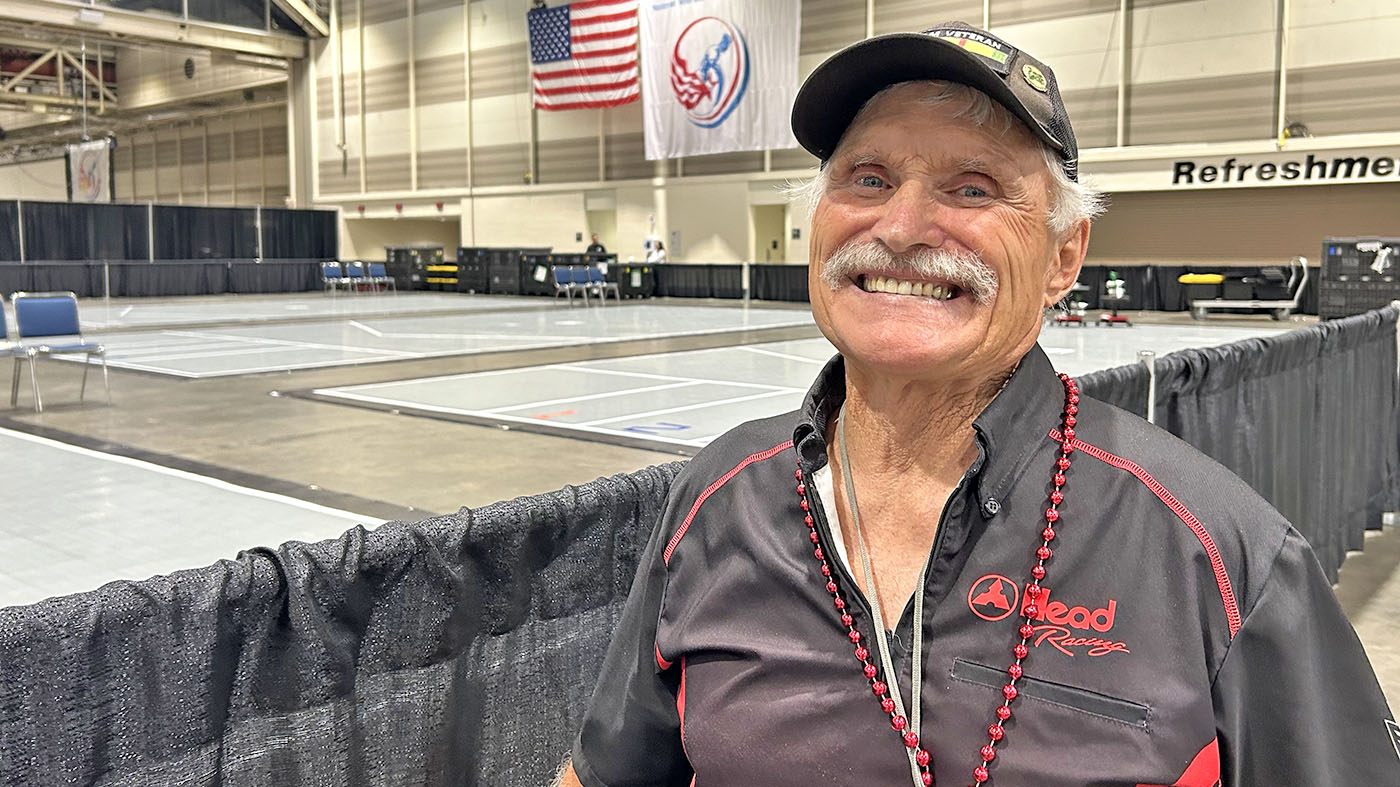As Jessica Conyers’ boots crunch across the snow toward the ski lift, she is fully aware of people bustling about, the whirring of the lifts and the swoosh of skiers flying by at the Disabled Veterans Winter Sports Clinic in Snowmass, Colorado.
But, foremost on her mind are the needs of the Veterans attending the event, and a close second, her facility service dog Wicker, who heels by her side.
“Wicker is a very good boy,” said Conyers, head coach for the team from Rocky Mountain VA. “He is loving, fun, playful and sweet.”
Wicker is one of the few professional trained facility service dogs in the VA network. Facility dogs are expertly trained dogs who partner with a facilitator and work in a health care or visitation facility. Born on National Dog Day, Aug. 26, the two-year-old yellow Labrador retriever was trained by Canine Companions, a nationwide organization that trains service dogs, including facility, hearing and skill companion dogs.
At the 37-bed residential bed rehab facility where he works, Wicker provides comfort and support for Veterans who are primarily diagnosed with homelessness or those escaping domestic violence.
Goal: Help them get back into independent housing
“Veterans come into our program with an average stay of six months. So, it is their home,” said Conyers, recreational therapist. “We really try to help Veterans work on any underlying issues they might be dealing with, like substance abuse, PTSD or other mental health diagnoses. The goal is to help them get back into independent housing.”
This is where Wicker’s mission begins. Many Veterans enjoy having a dog’s presence. Wicker makes it feel less sterile, less medical, and a little more friendly and homelike.
In March, Wicker brought his own special brand of medicine for the soul to the disabled Veterans at the Winter Sports Clinic.
“He has done amazing,” said Conyers, about Wickers behavior at the clinic.
The annual event is hosted by VA and DAV, and allows Veterans with disabilities—such as traumatic brain injuries, spinal cord injuries, amputations and blindness—to participate in Alpine and Nordic skiing, sled hockey, scuba diving, snowmobiling and rock climbing.
“He knows when it is time to work.”
“This is a big environment. There are a lot of other people here and a lot of other dog distractions here, other working dogs. But he has impressed me. He knows when it is time to work,” Conyers said.
Despite only having Wicker for seven months, Conyers is convinced that every VA should consider having a facility dog. But it’s also a commitment. It took more than a year to complete the application process, background check and interview to match Wicker with his handler Conyers.
“I hope having him out and around Veterans here at the Winter Sports Clinic will inspire more people to get a facility dog,” said Conyers. “We have talked to several therapists here and maybe inspired some Veterans who can benefit from a service dog. I hope to spread the word about how awesome these working dogs really are.”
To read more stories from the Winter Sports Clinic, visit VA News and Information.
Topics in this story
Link Disclaimer
This page includes links to other websites outside our control and jurisdiction. VA is not responsible for the privacy practices or the content of non-VA Web sites. We encourage you to review the privacy policy or terms and conditions of those sites to fully understand what information is collected and how it is used.
More Stories
One strategy credited for the improvement is a focus on building trust and stronger patient-provider relationships.
Army and Marine Corps Veteran started making models after being hospitalized at Connecticut VA.
Veteran Hank Ebert is a bit of a superstar in the National Veterans Wheelchair Games. He has been attending since 1993.






